By Richard Skanse
(LSM Jan/Feb 2012/vol. 5 – Issue 1)
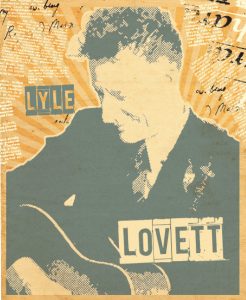 In between the platinum-certified Outlaw uprising of the ’70s and the scruffy, punk-infused alt-country movement of the ’90s (which eventually matured into today’s loosely defined but Grammy-sanctioned Americana genre), there was a brief spell in the ’80s when mainstream country music was pretty damned cool. Not all of it, necessarily, but just enough to still warrant a double take two-and-a-half decades later — especially the class of 1986. In addition to new-traditionalist poster-boy Randy Travis, that same banner year also featured the major-label debuts from a trio of edgy, rock-critic-endorsed singer-songwriters: reckless rebel spirit Steve Earle, flashy Bakersfield-twanger Dwight Yoakam, and a long, tall, rooster-haired Texan misfit named Lyle Lovett.
In between the platinum-certified Outlaw uprising of the ’70s and the scruffy, punk-infused alt-country movement of the ’90s (which eventually matured into today’s loosely defined but Grammy-sanctioned Americana genre), there was a brief spell in the ’80s when mainstream country music was pretty damned cool. Not all of it, necessarily, but just enough to still warrant a double take two-and-a-half decades later — especially the class of 1986. In addition to new-traditionalist poster-boy Randy Travis, that same banner year also featured the major-label debuts from a trio of edgy, rock-critic-endorsed singer-songwriters: reckless rebel spirit Steve Earle, flashy Bakersfield-twanger Dwight Yoakam, and a long, tall, rooster-haired Texan misfit named Lyle Lovett.
Yoakam was the biggest success out of the gate, but there was room on the country charts for all of them — at least for another year or two. Mainstream country music’s “great credibility scare,” as Earle snidely dubbed it, lasted about up to Rodney Crowell’s triumphant 1988 set Diamonds & Dirt, which squeezed out a record-setting five No. 1 singles before Garth Brooks and an army of hat acts laid claim to the ’90s. Yoakam would hang onto the country charts for a little while longer, but by mid-decade all three mavericks had established self-sustaining, left-of-mainstream careers that would carry them well into the new century. Today, Yoakam continues to carry the Bakersfield sound torch on independent releases while devoting more and more time to his acting career, and Earle is a politically charged folk troubadour. But it’s Lovett — always the most idiosyncratic oddball of the bunch — who seems to have maintained the highest public profile with the least amount of apparent artistic retooling. When you establish an “anything goes” stylistic modus operandi from the get-go, as Lovett did on his self-titled ’86 debut and the following year’s Pontiac, genre distinctions prove as irrelevant in the long run as chart positions.
Of course, diversity for diversity’s sake can be a dead-end in and of itself, an aimlessly meandering one-way ticket to Noveltyville. Fortunately for Lovett, eclecticism has never been his only calling card. He is, first and foremost, a songwriter par excellence, a generation removed but cut from the same high-quality cloth as Guy Clark, Townes Van Zandt and Steven Fromholz (to name but three of the fellow Texans he paid tribute to on his 1998 double-CD set, Step Inside This House). He is also an impeccable singer, live performer, and band leader, not to mention a somewhat notorious perfectionist in the recording studio. The wry sense of humor goes a long way, too.
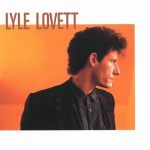 All of the above is on full display (or at least tellingly hinted at) right there on Lyle Lovett [Curb/MCA, 1986], co-produced by Tony Brown and Lovett. It opens with a flourish of lightning-paced Texas swing via the lively, fiddle-fueled “Cowboy Man,” a playful shot of maximum C&W that gave Lovett his first — and to date, only — Top 10 country hit. But on the very next song, the brooding “God Will,” he gets cold: “Who keeps on loving you when you’ve been lying?” he asks a cheating heart. “God will, but I won’t/And that’s the difference between God and me.” The yin/yang mood carries through the rest of the album, offering the perfect Lovett balance of jazzy fun (“Why I Don’t Know,” “An Acceptable Level of Ecstasy (The Wedding Song)”) and eloquent reflection (“If I Were the Man You Wanted,” “Closing Time”). Although the production on some tracks (most notably “You Can’t Resist It”) bears an unmistakable ’80s timestamp, as a whole the album holds up as one of the more impressive debuts in the country music canon. And the fact that Lovett wrote all 10 songs (sharing a co-write — with Robert Earl Keen — on only one, “This Old Porch”) served further notice that a major new talent had arrived.
All of the above is on full display (or at least tellingly hinted at) right there on Lyle Lovett [Curb/MCA, 1986], co-produced by Tony Brown and Lovett. It opens with a flourish of lightning-paced Texas swing via the lively, fiddle-fueled “Cowboy Man,” a playful shot of maximum C&W that gave Lovett his first — and to date, only — Top 10 country hit. But on the very next song, the brooding “God Will,” he gets cold: “Who keeps on loving you when you’ve been lying?” he asks a cheating heart. “God will, but I won’t/And that’s the difference between God and me.” The yin/yang mood carries through the rest of the album, offering the perfect Lovett balance of jazzy fun (“Why I Don’t Know,” “An Acceptable Level of Ecstasy (The Wedding Song)”) and eloquent reflection (“If I Were the Man You Wanted,” “Closing Time”). Although the production on some tracks (most notably “You Can’t Resist It”) bears an unmistakable ’80s timestamp, as a whole the album holds up as one of the more impressive debuts in the country music canon. And the fact that Lovett wrote all 10 songs (sharing a co-write — with Robert Earl Keen — on only one, “This Old Porch”) served further notice that a major new talent had arrived.
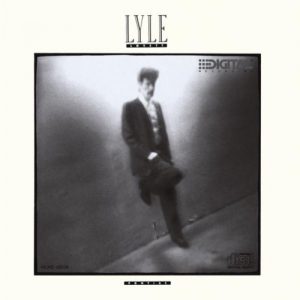 There would be no sophomore slump, either, as Pontiac [Curb/MCA, 1987] was very nearly twice as good. While “Give Back My Heart” and the achy “I Loved You Yesterday” nod to straight country in the vein the previous album’s “Cowboy Man” and “Farther Down the Line,” “She’s No Lady,” “M-O-N-E-Y,” “Black and Blue” and “She’s Hot to Go” find Lovett and crew limbering up for the jazzy big-band workout in store for his next outing. But the real gems are the wistful “If I Had a Boat,” the elegiac “Walk Through the Bottomland” (kissed by an Emmylou Harris guest vocal), the tragic “L.A. County,” the hauntingly poetic “Simple Song” (a dead ringer for Van Zandt at his best), and the austere still life painted in the title track. Lyrically, Lovett invariably leans more cynical than romantic, and an undercurrent of borderline misogyny flares up in his more light-hearted fare, but he’s suave enough to give women the last laugh; after he stresses just how ugly the gal in “She’s Hot to Go” is “from the front,” singer Francine Reed snaps back, “Well, you ugly, too!”
There would be no sophomore slump, either, as Pontiac [Curb/MCA, 1987] was very nearly twice as good. While “Give Back My Heart” and the achy “I Loved You Yesterday” nod to straight country in the vein the previous album’s “Cowboy Man” and “Farther Down the Line,” “She’s No Lady,” “M-O-N-E-Y,” “Black and Blue” and “She’s Hot to Go” find Lovett and crew limbering up for the jazzy big-band workout in store for his next outing. But the real gems are the wistful “If I Had a Boat,” the elegiac “Walk Through the Bottomland” (kissed by an Emmylou Harris guest vocal), the tragic “L.A. County,” the hauntingly poetic “Simple Song” (a dead ringer for Van Zandt at his best), and the austere still life painted in the title track. Lyrically, Lovett invariably leans more cynical than romantic, and an undercurrent of borderline misogyny flares up in his more light-hearted fare, but he’s suave enough to give women the last laugh; after he stresses just how ugly the gal in “She’s Hot to Go” is “from the front,” singer Francine Reed snaps back, “Well, you ugly, too!”
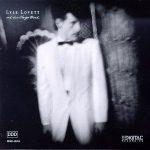 Reed — and the rest of Lovett’s impeccable, plus-sized touring and studio ensemble — are showcased front and center on Lyle Lovett and His Large Band [Curb/MCA, 1989], with the first half of the album given over to bluesy swing and jazzy nightclub arrangements. The wildcard highlight is “Here I Am,” in which Lovett’s droll, hipster-doofus narration is punctuated with blasts of sassy brass; it’s funny as hell, too: that “cheeseburger” punch line never gets old. Side two swings back to classic country balladry, with sterling originals “Nobody Knows Me” and “If You Were to Wake Up” nearly overshadowed by a sensational cover of the Tammy Wynette classic, “Stand By Your Man,” that, frankly, holds up as one of the finest tracks of Lovett’s career.
Reed — and the rest of Lovett’s impeccable, plus-sized touring and studio ensemble — are showcased front and center on Lyle Lovett and His Large Band [Curb/MCA, 1989], with the first half of the album given over to bluesy swing and jazzy nightclub arrangements. The wildcard highlight is “Here I Am,” in which Lovett’s droll, hipster-doofus narration is punctuated with blasts of sassy brass; it’s funny as hell, too: that “cheeseburger” punch line never gets old. Side two swings back to classic country balladry, with sterling originals “Nobody Knows Me” and “If You Were to Wake Up” nearly overshadowed by a sensational cover of the Tammy Wynette classic, “Stand By Your Man,” that, frankly, holds up as one of the finest tracks of Lovett’s career.
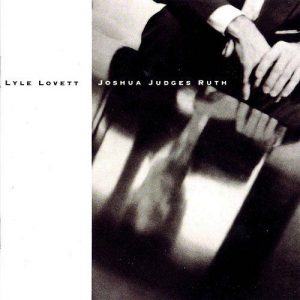 As strong as Lovett’s first three albums were, the ’90s would prove to be his greatest era as both a songwriter and recording artist. His first release of that decade, Joshua Judges Ruth [Curb/MCA, 1992], lives up to its biblically inspired (and brilliant) title via a handful of numbers steeped in stick-to-your-ribs Southern gospel and soul that put his band, and Reed in particular, in the spotlight (“I’ve Been to Memphis,” “Church,” “Since the Last Time,” “She Makes Me Feel Good”). But the deepest tracks all strike a more somber, meditative tone, the highlights being “Family Reserve,” a moving tribute to loved ones and friends passed, and “North Dakota,” a cowrite with the infamously non-prolific Willis Alan Ramsey. The album’s only real nod to country — and Lovett’s last explicit crack at the genre for some time to come, is “She’s Leaving Me Because She Really Wants To.”
As strong as Lovett’s first three albums were, the ’90s would prove to be his greatest era as both a songwriter and recording artist. His first release of that decade, Joshua Judges Ruth [Curb/MCA, 1992], lives up to its biblically inspired (and brilliant) title via a handful of numbers steeped in stick-to-your-ribs Southern gospel and soul that put his band, and Reed in particular, in the spotlight (“I’ve Been to Memphis,” “Church,” “Since the Last Time,” “She Makes Me Feel Good”). But the deepest tracks all strike a more somber, meditative tone, the highlights being “Family Reserve,” a moving tribute to loved ones and friends passed, and “North Dakota,” a cowrite with the infamously non-prolific Willis Alan Ramsey. The album’s only real nod to country — and Lovett’s last explicit crack at the genre for some time to come, is “She’s Leaving Me Because She Really Wants To.”
The same year Joshua Judges Ruth was released, Lovett’s side career as a quirky film and television character actor was launched via an appearance in Robert Altman’s The Player. It was a small part, but it landed him roles in a handful of the acclaimed director’s subsequent films — and a whirlwind romance, elopement, and 22-month marriage to Hollywood superstar Julia Roberts. Smack in the middle of arguably the most high-profile period of his life (albeit cast as that weird-looking country singer with the funny hair married to America’s sweetheart), Lovett issued the second best album of his career: I Love Everybody [Curb/MCA, 1994]. His absolute best record, The Road to Ensenada [Curb/MCA, 1996], was released in the immediate aftermath of his divorce.
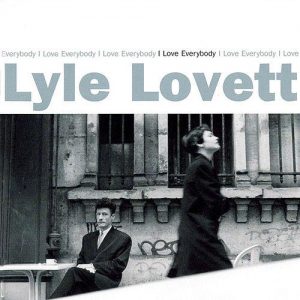 I Love Everybody is double-stuffed with goodness: 18 songs clocking in at a little shy of an hour, and not a dud in the bunch. The publishing on four of the songs dates back to 1983, three years before Lovett’s debut, and a fifth is stamped 1989, but nothing about the album suggests a songwriter desperately digging through his back pages for material. This is the work of an artist operating at peak confidence, unafraid to mix sublime beauty (“Old Friend,” “Just the Morning”) with unabashed absurdity (“Penguins”) and a wicked sense of humor on par with prime Randy Newman (“Creeps Like Me,” “Skinny Legs”). And although strings are used tastefully throughout, the Large Band mostly sits this one out, leaving the focus entirely on Lovett the songwriter. His style may not be for the proverbial “everybody,” but song for song, there’s really no other album in his catalog that better captures his peculiar wit and offbeat charm. As such, it’s an ideal starting point for Lovett newcomers — and a worthy appetizer for his masterpiece.
I Love Everybody is double-stuffed with goodness: 18 songs clocking in at a little shy of an hour, and not a dud in the bunch. The publishing on four of the songs dates back to 1983, three years before Lovett’s debut, and a fifth is stamped 1989, but nothing about the album suggests a songwriter desperately digging through his back pages for material. This is the work of an artist operating at peak confidence, unafraid to mix sublime beauty (“Old Friend,” “Just the Morning”) with unabashed absurdity (“Penguins”) and a wicked sense of humor on par with prime Randy Newman (“Creeps Like Me,” “Skinny Legs”). And although strings are used tastefully throughout, the Large Band mostly sits this one out, leaving the focus entirely on Lovett the songwriter. His style may not be for the proverbial “everybody,” but song for song, there’s really no other album in his catalog that better captures his peculiar wit and offbeat charm. As such, it’s an ideal starting point for Lovett newcomers — and a worthy appetizer for his masterpiece.
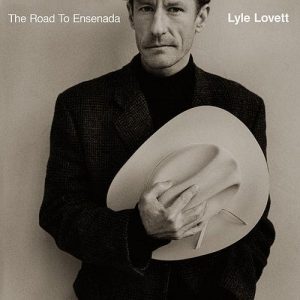 Because of the timing of its release, The Road to Ensenada has on occasion been referred to as Lovett’s “divorce album”; but you’ll find none of the bitter baggage that usually comes with that particular term. There are sad songs here, and reflections on lovers and friends missing connections and drifting apart, but there’s also humor in spades and the kind of melodies that can’t help but carry as much ebullient hope as resigned heartbreak. It also plays to all of his varied stylistic strengths with dazzling dexterity and seamless flow, effortlessly moving from clever country (“Don’t Touch My Hat”) to sly lounge (“Her First Mistake”) to soaring, irresistibly catchy Americana pop (“Fiona,” “Private Conversation”) to full-on, feel-good swing (“That’s Right (You’re Not from Texas)”). Every song here is a gem, but the title track is the real pièce de résistance, with eloquent verses cloaked in mystery and a stark refrain that cuts through the beautifully mournful melody like a serrated knife to the heart: “As you walk and as you breathe/You ain’t no friend to me.” It’s a devastating climax and far and away the finest song in Lovett’s canon, but his gentleman’s instincts keep him from walking away after delivering his sucker punch. Instead, he chases the sting of “Ensenada” with a hidden track, “The Girl in the Corner,” that closes the album on a touchingly redemptive note of hope.
Because of the timing of its release, The Road to Ensenada has on occasion been referred to as Lovett’s “divorce album”; but you’ll find none of the bitter baggage that usually comes with that particular term. There are sad songs here, and reflections on lovers and friends missing connections and drifting apart, but there’s also humor in spades and the kind of melodies that can’t help but carry as much ebullient hope as resigned heartbreak. It also plays to all of his varied stylistic strengths with dazzling dexterity and seamless flow, effortlessly moving from clever country (“Don’t Touch My Hat”) to sly lounge (“Her First Mistake”) to soaring, irresistibly catchy Americana pop (“Fiona,” “Private Conversation”) to full-on, feel-good swing (“That’s Right (You’re Not from Texas)”). Every song here is a gem, but the title track is the real pièce de résistance, with eloquent verses cloaked in mystery and a stark refrain that cuts through the beautifully mournful melody like a serrated knife to the heart: “As you walk and as you breathe/You ain’t no friend to me.” It’s a devastating climax and far and away the finest song in Lovett’s canon, but his gentleman’s instincts keep him from walking away after delivering his sucker punch. Instead, he chases the sting of “Ensenada” with a hidden track, “The Girl in the Corner,” that closes the album on a touchingly redemptive note of hope.
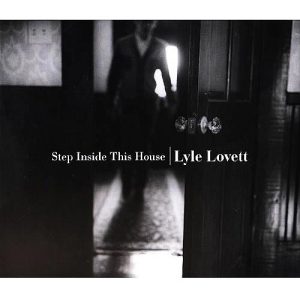 The Road to Ensenda didn’t yield any major hit singles, but it did land Lovett a Grammy for Best Country Album. His next album of original material would be a long time coming, though — seven years. In the interim, he released an ambitious double CD tribute to his favorite fellow Texas songwriters (both mentors and peers), Step Inside This House [Curb/MCA, 1998], and his first live album, Live in Texas [Curb/MCA, 1999]. The former is a worthy follow-up to Ensenada and as essential as anything in his catalog, with sterling interpretations of songs by Steven Fromholz (“Bears,” “Texas Trilogy”), Townes Van Zandt (“Lungs,” “Flyin’ Shoes,” “Highway Kind,” “If I Needed You”), Eric Taylor (“Memphis Midnight/Memphis Morning”), Vince Bell (“I’ve Had Enough”), Walter Hyatt (“Teach Me About Love,” “Babes in the Woods,” “Lonely in Love,” “I’ll Come Knockin’”), Willis Alan Ramsey (“Sleepwalking”), David Rodriguez (“Ballad of the Snow Leopard and the Tanqueray Cowboy”), Michael Martin Murphey (“More Pretty Girls than One”), Robert Earl Keen (“Rollin’ By”), and — perhaps most memorably, Guy Clark (“Step Inside this House,” which Clark had never recorded). It’s a monumental labor of love, right down to the thick booklet of lyrics and classy black-and-white photos of Lovett with many of the featured writers.
The Road to Ensenda didn’t yield any major hit singles, but it did land Lovett a Grammy for Best Country Album. His next album of original material would be a long time coming, though — seven years. In the interim, he released an ambitious double CD tribute to his favorite fellow Texas songwriters (both mentors and peers), Step Inside This House [Curb/MCA, 1998], and his first live album, Live in Texas [Curb/MCA, 1999]. The former is a worthy follow-up to Ensenada and as essential as anything in his catalog, with sterling interpretations of songs by Steven Fromholz (“Bears,” “Texas Trilogy”), Townes Van Zandt (“Lungs,” “Flyin’ Shoes,” “Highway Kind,” “If I Needed You”), Eric Taylor (“Memphis Midnight/Memphis Morning”), Vince Bell (“I’ve Had Enough”), Walter Hyatt (“Teach Me About Love,” “Babes in the Woods,” “Lonely in Love,” “I’ll Come Knockin’”), Willis Alan Ramsey (“Sleepwalking”), David Rodriguez (“Ballad of the Snow Leopard and the Tanqueray Cowboy”), Michael Martin Murphey (“More Pretty Girls than One”), Robert Earl Keen (“Rollin’ By”), and — perhaps most memorably, Guy Clark (“Step Inside this House,” which Clark had never recorded). It’s a monumental labor of love, right down to the thick booklet of lyrics and classy black-and-white photos of Lovett with many of the featured writers. 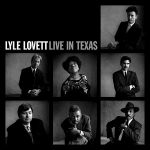 In contrast, Live in Texas feels like a breezy stopgap; the performances are top-notch and the sound is perfect, but the setlist favors selections from his Large Band-centric early years at the expense of almost anything from I Love Everybody and Ensenada, save for “Penguins” and “That’s Right (You’re Not from Texas).” Overall, it’s a pleasant addition to the catalog, and newbies and casual fans certainly won’t find much to quibble over, but connoisseurs of Lovett’s ’90s songbook are bound to feel shortchanged.
In contrast, Live in Texas feels like a breezy stopgap; the performances are top-notch and the sound is perfect, but the setlist favors selections from his Large Band-centric early years at the expense of almost anything from I Love Everybody and Ensenada, save for “Penguins” and “That’s Right (You’re Not from Texas).” Overall, it’s a pleasant addition to the catalog, and newbies and casual fans certainly won’t find much to quibble over, but connoisseurs of Lovett’s ’90s songbook are bound to feel shortchanged.
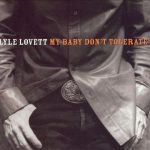 After a mostly instrumental and quickly forgettable soundtrack for Robert Altman’s Dr. T & the Women [Curb/MCA/Artisan, 2000], a passable greatest-hits set (Anthology Volume One: Cowboy Man [Curb/MCA, 2001], which tacked on a couple of new tracks but again skipped over his ’90s output), and a collection of cover songs culled form other soundtracks (Smile: Songs from the Movies [Curb/MCA, 2003]), Lovett at long last returned with an album of new songs: My Baby Don’t Tolerate [Curb/Lost Highway, 2003]. Although not without a few characteristic detours (including a cover of Blaze Foley’s “Election Day” and a pair of showy gospel tunes at the end), it’s his most straight-ahead country record since his debut — a fact borne out by its climb to No. 7 on Billboard’s Country Albums Chart (at that point, a career high matched only by his live album and bested only his next outing, which would hit No. 2). Regardless of chart success, though, it’s at best merely a good Lovett record overshadowed by great ones; songs like “Cute as a Bug,” “Truck Song,” and “San Antonio Girl” all sound tailor-made for singing along with while driving down country roads, but the poet of Pontiac through Ensenada still seems out to lunch. Only the bluesy title track, the lovely “In My Own Mind” and the moody, heavy-hearted “Working Too Hard” come close to reaching his usual high standard.
After a mostly instrumental and quickly forgettable soundtrack for Robert Altman’s Dr. T & the Women [Curb/MCA/Artisan, 2000], a passable greatest-hits set (Anthology Volume One: Cowboy Man [Curb/MCA, 2001], which tacked on a couple of new tracks but again skipped over his ’90s output), and a collection of cover songs culled form other soundtracks (Smile: Songs from the Movies [Curb/MCA, 2003]), Lovett at long last returned with an album of new songs: My Baby Don’t Tolerate [Curb/Lost Highway, 2003]. Although not without a few characteristic detours (including a cover of Blaze Foley’s “Election Day” and a pair of showy gospel tunes at the end), it’s his most straight-ahead country record since his debut — a fact borne out by its climb to No. 7 on Billboard’s Country Albums Chart (at that point, a career high matched only by his live album and bested only his next outing, which would hit No. 2). Regardless of chart success, though, it’s at best merely a good Lovett record overshadowed by great ones; songs like “Cute as a Bug,” “Truck Song,” and “San Antonio Girl” all sound tailor-made for singing along with while driving down country roads, but the poet of Pontiac through Ensenada still seems out to lunch. Only the bluesy title track, the lovely “In My Own Mind” and the moody, heavy-hearted “Working Too Hard” come close to reaching his usual high standard.
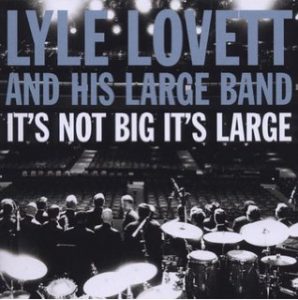 It’s Not Big It’s Large [Curb/Lost Highway, 2007] is a welcome return to form. Although both the title and cover art suggest a full-bore sequel to 1989’s Lyle Lovett and His Large Band, it’s actually a little closer in spirit to Joshua Judges Ruth. “All Downhill” and “Make It Happy” are both rollicking, riotous good fun, but “I Will Rise Up/Ain’t No More Cane” is 7-minutes-plus of thundering Old Testament gospel blues. Equally compelling, though much more subdued, is the exquisite “South Texas Girl.” The guest appearance by his hero Guy Clark, who sings the song’s intro and outro, is fitting, because Lovett’s nostalgic, vivid snapshot of a childhood car trip to the Texas Coast with his folks is about as fine a painting in song as Clark’s ever crafted himself. The melancholy and world-weary “This Traveling Around” is a real keeper, too.
It’s Not Big It’s Large [Curb/Lost Highway, 2007] is a welcome return to form. Although both the title and cover art suggest a full-bore sequel to 1989’s Lyle Lovett and His Large Band, it’s actually a little closer in spirit to Joshua Judges Ruth. “All Downhill” and “Make It Happy” are both rollicking, riotous good fun, but “I Will Rise Up/Ain’t No More Cane” is 7-minutes-plus of thundering Old Testament gospel blues. Equally compelling, though much more subdued, is the exquisite “South Texas Girl.” The guest appearance by his hero Guy Clark, who sings the song’s intro and outro, is fitting, because Lovett’s nostalgic, vivid snapshot of a childhood car trip to the Texas Coast with his folks is about as fine a painting in song as Clark’s ever crafted himself. The melancholy and world-weary “This Traveling Around” is a real keeper, too. 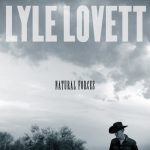 Unfortunately, comparable highlights are few on the sooner-than-usual follow-up, Natural Forces [Curb/Lost Highway, 2009], which is heavy on covers (including more selections from Townes Van Zandt, Vince Bell and Eric Taylor) that overshadow the handful of lesser Lovett originals. The feisty, innuendo-laced “Farmer Brown/Chicken Reel” and “Pantry” are both happy-go-lucky toe-tappers, and the closing “It’s Rock and Roll” — co-written with Robert Earl Keen — is a novelty good for a listen or two, but the title track, an earnest paean to home on the range, plods along with heavy-footed gravitas but with no particular place to go. It’s like Lovett’s own “Kashmir.”
Unfortunately, comparable highlights are few on the sooner-than-usual follow-up, Natural Forces [Curb/Lost Highway, 2009], which is heavy on covers (including more selections from Townes Van Zandt, Vince Bell and Eric Taylor) that overshadow the handful of lesser Lovett originals. The feisty, innuendo-laced “Farmer Brown/Chicken Reel” and “Pantry” are both happy-go-lucky toe-tappers, and the closing “It’s Rock and Roll” — co-written with Robert Earl Keen — is a novelty good for a listen or two, but the title track, an earnest paean to home on the range, plods along with heavy-footed gravitas but with no particular place to go. It’s like Lovett’s own “Kashmir.”
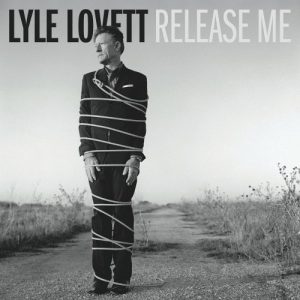 Given that the ratio of covers to Lovett-penned songs is even more lopsided (15:2) on Release Me [Curb/Lost Highway, 2012] — not to mention the fact that its very name suggests a tongue-in-cheek admission of its status as a “contractual obligation” type deal, completing his 25-year run with Curb Records — any fan underwhelmed by the man’s track record in recent years could be forgiven a touch of worry. But what looks like a scattershot mess on paper actually pans out to be one of Lovett’s most delightfully eccentric records. “Baby, It’s Cold Outside,” “Christmastime Is Here” and Lovett’s own “The Girl with the Holiday Smile” first appeared on the 2011 digital EP Songs of the Season, but they’re included here again on this late-February release because, well, why not? k.d. lang, another square peg from country music’s great credibility scare of the mid-80s, joins Lovett for a woozy duet on “Release Me” (the old country standard immortalized by Ray Price), and Sara and Sean Watkins of Nickel Creek fame guest on Lovett’s dreamy “Night’s Lullaby.” “Understand You,” a very fine old Eric Taylor tune, fits Lovett like a supple glove, and Chuck Berry’s done-to-death “Brown-Eyed Handsome Man” gets such an extreme makeover, it sounds like a whole new song. Other highlights include “Dress of Laces,” a John Grimaudo/Saylor White tune previously covered by Nanci Griffith on her Other Voices, Too album, and the 15th-century hymnal “Keep Us Steadfast.”
Given that the ratio of covers to Lovett-penned songs is even more lopsided (15:2) on Release Me [Curb/Lost Highway, 2012] — not to mention the fact that its very name suggests a tongue-in-cheek admission of its status as a “contractual obligation” type deal, completing his 25-year run with Curb Records — any fan underwhelmed by the man’s track record in recent years could be forgiven a touch of worry. But what looks like a scattershot mess on paper actually pans out to be one of Lovett’s most delightfully eccentric records. “Baby, It’s Cold Outside,” “Christmastime Is Here” and Lovett’s own “The Girl with the Holiday Smile” first appeared on the 2011 digital EP Songs of the Season, but they’re included here again on this late-February release because, well, why not? k.d. lang, another square peg from country music’s great credibility scare of the mid-80s, joins Lovett for a woozy duet on “Release Me” (the old country standard immortalized by Ray Price), and Sara and Sean Watkins of Nickel Creek fame guest on Lovett’s dreamy “Night’s Lullaby.” “Understand You,” a very fine old Eric Taylor tune, fits Lovett like a supple glove, and Chuck Berry’s done-to-death “Brown-Eyed Handsome Man” gets such an extreme makeover, it sounds like a whole new song. Other highlights include “Dress of Laces,” a John Grimaudo/Saylor White tune previously covered by Nanci Griffith on her Other Voices, Too album, and the 15th-century hymnal “Keep Us Steadfast.”
Truthfully, not everything Lovett throws at the wall on this record sticks, and nobody will ever make the mistake of counting Release Me as among his best. But the devil-may-care abandon evidenced from start to finish makes it the perfect capstone for the first stage of his career. If you’re starting your Lovett collection from scratch, start in the middle, jump back to the beginning, then follow his wayward lead and save this one for last. Then smile, or scratch your head a little in confusion, and wait along with the rest of us (Lovett included) to see what he comes up with next.
MR. RECORD MAN’S TOP 5 LYLE LOVETT ALBUMS
1. The Road to Ensenada (Curb/MCA, 1996)
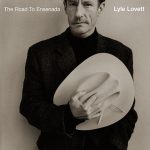 What Car Wheels on a Gravel Road is to Lucinda Williams, The Houston Kid is to Rodney Crowell, El Corazon (and/or Train a Comin’) is to Steve Earle, and maybe even what Old No. 1 is to Guy Clark, The Road to Ensenada is to Lyle Lovett. Simply put, everything Lovett does really well, he does best here. Key tracks: “The Road to Ensenada,” “Private Conversation,” “It Ought to Be Easier”
What Car Wheels on a Gravel Road is to Lucinda Williams, The Houston Kid is to Rodney Crowell, El Corazon (and/or Train a Comin’) is to Steve Earle, and maybe even what Old No. 1 is to Guy Clark, The Road to Ensenada is to Lyle Lovett. Simply put, everything Lovett does really well, he does best here. Key tracks: “The Road to Ensenada,” “Private Conversation,” “It Ought to Be Easier”
2. I Love Everybody, (Curb/MCA, 1994)
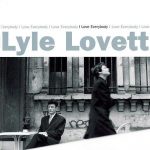 There’s a time and place for Lovett’s sometimes spotlight-stealing Large Band, but the stripped-down, fuss-free approach to this uniformly excellent collection of songs (some written before his 1986 debut) is a breath of fresh air. Track for track, Lovett’s most charmingly off-kilter and unabashedly funny record — and one he could pretty much play straight through solo acoustic. Key tracks: “Creeps Like Me,” “Old Friend,” “Skinny Legs”
There’s a time and place for Lovett’s sometimes spotlight-stealing Large Band, but the stripped-down, fuss-free approach to this uniformly excellent collection of songs (some written before his 1986 debut) is a breath of fresh air. Track for track, Lovett’s most charmingly off-kilter and unabashedly funny record — and one he could pretty much play straight through solo acoustic. Key tracks: “Creeps Like Me,” “Old Friend,” “Skinny Legs”
3. Step Inside This House, (Curb/MCA, 1999)
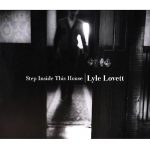 A two-CD set clocking in at 120 minutes, this is Lovett’s reverent homage to a handful of his own favorite Texas singer-songwriters, ranging from titans Guy Clark and Townes Van Zandt to his old College Station front-porch pickin’ buddy Robert Earl Keen. Some writers are given more disc space than others, but Lovett invests each cover with as much care and painstaking passion as he does his own work. Key tracks: “Step Inside This House,” “Texas Trilogy,” “Highway Kind”
A two-CD set clocking in at 120 minutes, this is Lovett’s reverent homage to a handful of his own favorite Texas singer-songwriters, ranging from titans Guy Clark and Townes Van Zandt to his old College Station front-porch pickin’ buddy Robert Earl Keen. Some writers are given more disc space than others, but Lovett invests each cover with as much care and painstaking passion as he does his own work. Key tracks: “Step Inside This House,” “Texas Trilogy,” “Highway Kind”
4. Pontiac, (Curb/MCA, 1987)
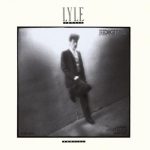 Lovett’s self-titled debut didn’t suggest a whole lot of room for improvement, but he upped his game on every level a mere year later on his sophomore release. There’s still enough straight country here to fool the mainstream, but the forays into bluesy big-band swing and richly poetic, Clark/Van Zandt-inspired songcraft marked him as an artist whose muse could never be fully contained under even the biggest 10-gallon hat. Key tracks: “If I Had a Boat,” “L.A. County,” “Simple Song”
Lovett’s self-titled debut didn’t suggest a whole lot of room for improvement, but he upped his game on every level a mere year later on his sophomore release. There’s still enough straight country here to fool the mainstream, but the forays into bluesy big-band swing and richly poetic, Clark/Van Zandt-inspired songcraft marked him as an artist whose muse could never be fully contained under even the biggest 10-gallon hat. Key tracks: “If I Had a Boat,” “L.A. County,” “Simple Song”
5. It’s Not Big It’s Large, (Curb/Lost Highway, 2007)
 Conventional wisdom would probably recommend picking up the earlier Lyle Lovett and His Large Band, Joshua Judges Ruth or even Lyle Lovett before this one, but it seems unfair not to acknowledge Lovett’s recordings from the last decade. This is his best release of the new century, and strong enough to hold its own against most of his ’80s and ’90s output, to boot. Despite being the highest-charting record of his career (peaking at No. 2 on the country chart), it’s surprisingly underrated. Key tracks: “South Texas Girl,” “I Will Rise Up/Ain’t No More Cane,” “All Downhill”
Conventional wisdom would probably recommend picking up the earlier Lyle Lovett and His Large Band, Joshua Judges Ruth or even Lyle Lovett before this one, but it seems unfair not to acknowledge Lovett’s recordings from the last decade. This is his best release of the new century, and strong enough to hold its own against most of his ’80s and ’90s output, to boot. Despite being the highest-charting record of his career (peaking at No. 2 on the country chart), it’s surprisingly underrated. Key tracks: “South Texas Girl,” “I Will Rise Up/Ain’t No More Cane,” “All Downhill”




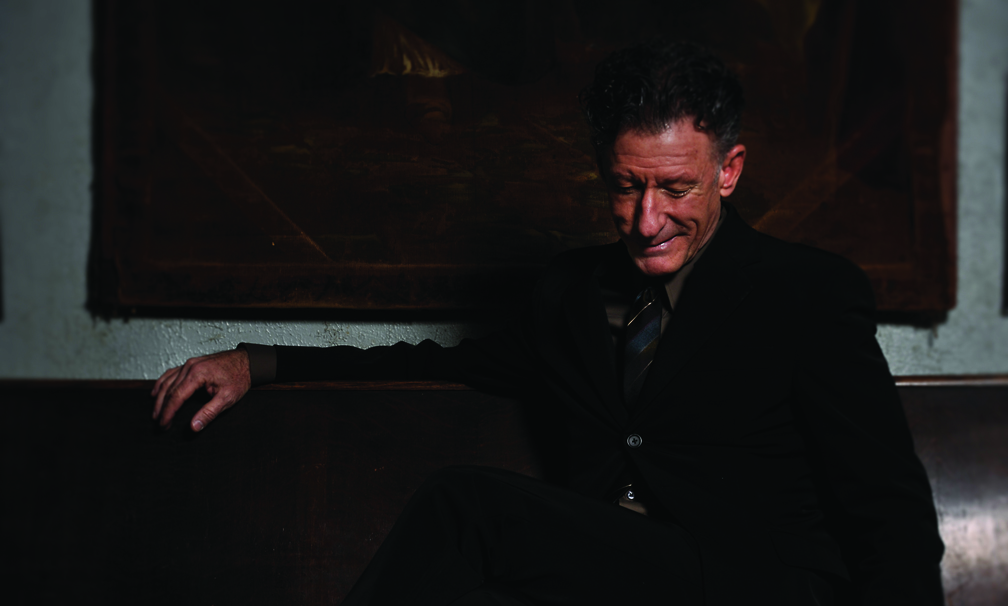

No Comment